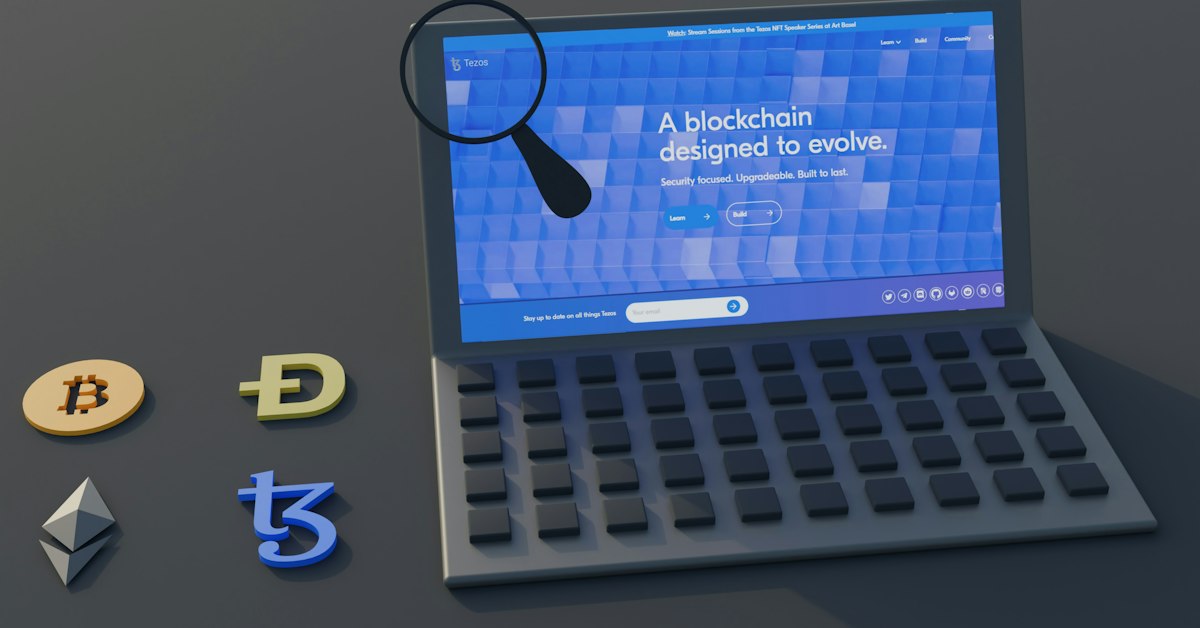The Role of Governance Tokens in Cryptocurrency Networks: Decentralized Decision-Making
1. Introduction
Cryptocurrencies operate on decentralized networks, and governance tokens play a pivotal role in shaping their direction. Cryptocurrencies have revolutionized financial systems by operating on decentralized networks. Within this framework, governance tokens stand as crucial tools that dictate the evolution and direction of these digital ecosystems.
2. What Are Governance Tokens?
Understanding the Core Functionality
Governance tokens are digital assets that grant holders the right to vote and participate in decision-making processes within a blockchain network. Governance tokens essentially confer power to holders, enabling them to participate in decision-making processes within a blockchain network. These tokens provide a voice to the community, allowing them to vote on proposals, protocol upgrades, and fundamental changes within the network.
3. Importance of Governance Tokens
Embracing Decentralization
These tokens facilitate democratic control, ensuring a fair and inclusive approach to decision-making in decentralized ecosystems. Decentralization lies at the heart of cryptocurrencies, aiming to eliminate central authorities and distribute control among network participants. Governance tokens actualize this ideology by democratizing decision-making, ensuring a level playing field for all token holders to influence the network’s trajectory.
4. Role in Cryptocurrency Networks
Empowering the Community
Governance tokens empower token holders to propose, debate, and vote on network changes, fostering a sense of ownership and participation. The empowerment of token holders through governance tokens is transformative. It encourages active participation, creating a sense of ownership and responsibility within the community. Token holders not only have the power to propose changes but also to vote on and implement them, thus shaping the network’s future.
5. Examples of Governance Tokens
Real-World Applications
Explore examples like Compound (COMP) and Uniswap (UNI), showcasing how governance tokens function in real-time governance. Prominent examples like Compound’s COMP and Uniswap’s UNI tokens exemplify the functionality of governance tokens. COMP holders, for instance, have the authority to suggest and vote on changes to the Compound protocol, influencing the lending and borrowing dynamics.
6. How Governance Tokens Work
Mechanisms & Voting Systems
Delve into the mechanisms behind governance tokens, including voting systems and token staking for decision-making. Governance tokens utilize various voting mechanisms, such as token-weighted voting or quadratic voting, where votes are proportional to the number of tokens held. Additionally, token staking mechanisms, where tokens are locked for a specified period, incentivize active participation in decision-making processes.
7. Challenges & Benefits
Balancing Act
Discuss the challenges of governance tokens, such as voter apathy, while highlighting their benefits in maintaining network integrity. While governance tokens present an opportunity for democratic decision-making, challenges persist. Voter apathy and centralization risks due to large token holders exerting disproportionate influence are among the primary concerns. Yet, their benefits in maintaining network security and fostering community engagement cannot be overlooked.
8. The Future of Governance Tokens
Evolution & Potential
Speculate on the future evolution of governance tokens, their potential impact on crypto networks, and the broader digital landscape. The evolution of governance tokens holds immense promise. With advancements in blockchain technology, these tokens are likely to become more sophisticated, allowing for finer governance mechanisms and increased network resilience. Their potential impact extends beyond cryptocurrencies, potentially influencing governance structures in various sectors.
Governance tokens form the backbone of decentralized decision-making, empowering communities and ensuring a democratic approach to crypto network management.
FAQ
Frequently Asked Questions
- What is the primary purpose of governance tokens?
- How do governance tokens differ from regular cryptocurrencies?
- Can anyone participate in governance using these tokens?
- Are governance token decisions binding for the network?
- What challenges do governance tokens face in decentralized networks?
In conclusion, the significance of governance tokens in cryptocurrency networks cannot be overstated. As these tokens enable decentralized decision-making, they foster community involvement and ensure a fair, democratic approach to managing blockchain networks.




